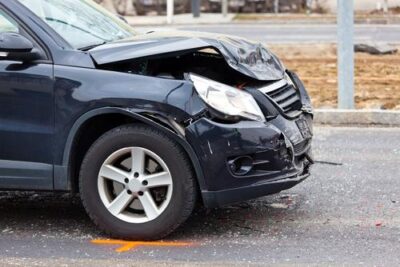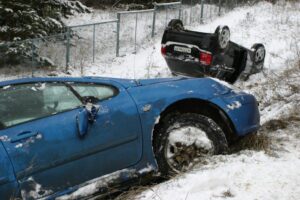
The aftermath of an auto accident can affect more than just your physical body. Getting into a crash can cause you to fear driving on Georgia highways long after the accident is over. You might wonder if there’s a way to get over your fear and be able to drive without excessive worry and anxiety.
The answer is yes, you can work through your driving fear after an accident. It may take some work, however—and sometimes a lot of work. That may include getting counseling, talking through your fears with loved ones, driving a little more each time you get behind the wheel and other strategies that we’ll go over below.
What Can I Do to Work Through My Fear of Driving?
It’s unlikely that your fears of driving on Georgia highways will go away on their own after the accident. The following techniques can help you work through them.
Get the strong arm
Cognitive Behavioral Therapy
One of the most common strategies for getting over fears like driving is known as cognitive-behavioral therapy (CBT). Through CBT, you can identify the fears you are having around driving. It’s a very popular type of talk therapy that you can use with a mental health professional, and you can use its techniques on your own too.
After an accident, your fear of driving on the highway likely stems from the past negative experience you’ve had. You might have anxiety about the same thing will happen again. Maybe getting onto the highway gives you flashbacks of the accident and causes panic.
Your brain clings to the negative emotions around driving, making it hard for you to recognize the irrational ones.
CBT helps you:
- Become more aware of your negative thoughts
- Challenge those negative thoughts
- And help you replace them with positive thoughts that are actually effective
To use CBT on your own to address your fear of driving on highways, you can:
- Identify the thoughts you are having around driving
- Determine which common cognitive distortions those thoughts fall under
- Restructure your thoughts to ones that are more rational
For example, you might think that driving onto the highway will definitely result in an accident. This is clearly a cognitive distortion, as it’s irrational to think that you will absolutely get into an accident if you get on the highway.
You would need to identify the distortions and work on restructuring the thought to be more realistic, such as:
- “The chances of getting into an accident are very low (one in 55, according to Cars.com), and those chances continue to go down each year.”
- “I am a careful driver.”
- “If an accident did happen, I would be able to handle it.”
Confronting your thoughts about the accident and your fears is one of the most powerful ways to get over your driving anxieties over time.
Exposure Therapy
Exposure therapy, as it sounds, is about gradually exposing yourself to the thing that scares you. A lot of professionals would recommend that you not avoid driving after an accident, as it can become harder with time to get back on the road. When phobias around driving develop after an accident, they can last a long time if not addressed.
By exposing yourself to driving on Georgia highways, even though it scares you, you can slowly recognize that you won’t lose control and it will be okay:
- Begin with short, easy trips in your vehicle, such as driving through your neighborhood, to the store, or on the service road instead of the highway
- Starting with low speed and low-traffic areas, then gradually working up to higher-traffic areas with higher speed limits
- Bringing a friend or family member with you to help ease your anxiety
- Driving past the area where your accident happened instead of going out of your way to avoid it
A little at a time, you can become more comfortable with driving on the highway.
Talk About the Accident and Your Fears
Don’t be afraid to open up about what you’re feeling to those you trust. Getting your thoughts and fears out verbally can make it easier to process the accident and your feelings surrounding it.
Be sure to discuss how you were able to minimize your injuries during the accident and ways you dealt with the aftermath. Focus on the positives most of all.
You can also journal about your fears after the accident if that helps you work through them. Sometimes, getting your thoughts out on paper can help make them less scary or overwhelming.
Take a Defensive Driving Course
Taking a class or two on driving can help build your confidence in getting on the road. Plus, having a professional in the car with you may help you feel more secure and prepared on the highways.
Talk to a Car Accident Lawyer About Your Accident
If you were not at fault for your accident, you may have a right to the financial recovery of your damages. You have two years from the date of your accident to file an injury claim. If you need help with your case, John Foy & Associates can help. Call us today for a FREE consultation or contact us online to get started.
(404) 400-4000 or complete a Free Case Evaluation form





